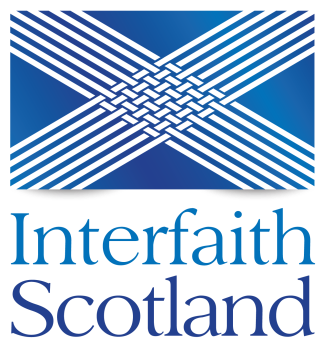Besides the “normal” interfaith groups exist also some “women (only) interfaith groups”, for example in Glasgow and Edinburgh and some interfaith groups organize “women only interfaith events” from time to time. I think that’s good! In some cultures and faith traditions it is not usual that men and women, who are not relatives, talk to each other in public about personal topics. The women interfaith groups are an opportunity for these women to get in contact with people of different faiths. Of course in a perfect world it would be not necessary to give anyone this kind of special space, because in a perfect world (from my point of view) everyone can speak respectful and safe to everyone without thinking about their gender, sexual orientation, nationality, faith, age, and disabilities – but our world is not perfect. And because of that it’s good that there is a special space for women in interfaith dialogue.
When I attend interfaith events, for example during the last interfaith week, or visit interfaith groups it is interesting for me to see who is there. Is there a wide range of people or are they all from a similar background. Of course one criteria where a huge diversity is expected, when going to an interfaith event, is the faith background and usually this works very well. Not so huge is usually the diversity regarding the age – many interfaith groups members are older than 40 or 50 and younger people are very rare at many of the events. But at the moment Interfaith Scotland is working very hard to get more young people (under 25) engaged in interfaith work – this might be a topic for another blog. From my subjective view on the interfaith events I attended I can say, that at most of the events More than two-thirds of the attending people are female. Also most of the interfaith groups I know have a female majority. In these cases often one of the few male members of the groups work as it’s chair person (but of course not always!). One huge exception of the events with a female majority are the religious leaders meetings – here are men clearly dominating in numbers and speaking time. Also the board of Interfaith Scotland has a male majority, while the staff is mainly female.
Maybe I have been just to the “wrong” events (and I have also been to Interfaith groups or events where there were more men than women – but they were clearly fewer in number than the ones with a female majority), but maybe there is something in the interfaith work in Scotland – especially on the grassroot level that attracts women more than men. If this is the case we should think about why this is the case.
If the female majority at Interfaith Week events was just a phenomena of this year (and I can’t say anything about other months than the time since July 2017), one explanation could be this years theme of Scottish Interfaith Week. Even if men can be as much as creative and artistic as women (and still men artists earn more money with their work than their female colleagues), but in our society are creative works rather recognised as “typical female”.
My feeling is that the cause for the phenomenon is rather not because of the theme, but more general. Maybe women are just more interested in interfaith dialogue… but I don’t believe that’s the case in general. Otherwise it’s hard to explain that on the more representative level suddenly there is a male majority in interfaith. One important point is, I think, that in many Christian congregations – but I think also in other faith communities – in Western countries women are in the majority of the active members. That’s something Interfaith Scotland is not able to change, but a task for the faith communities to think about how to attract more men. But maybe Interfaith Scotland should also try to attract more men for interfaith work on the grassroot level (outside of the representative parts). One possibility would be to organize “men only” events from time to time. I could imagine that these events can be similar to “normal” interfaith events, but maybe have a special topic or are connected with a special activity. Even if men are still privileged in nearly every society in the world I could imagine that they would also appreciate a special space to experience interfaith dialogue in a way that suits them – so that interfaith dialogue doesn’t becomes an activity for women in the age of 40 or older but stays and becomes an activity for everyone.

